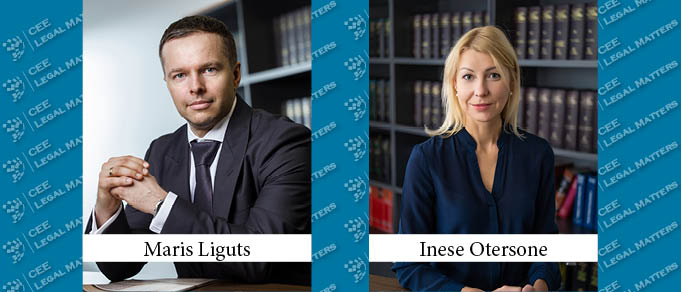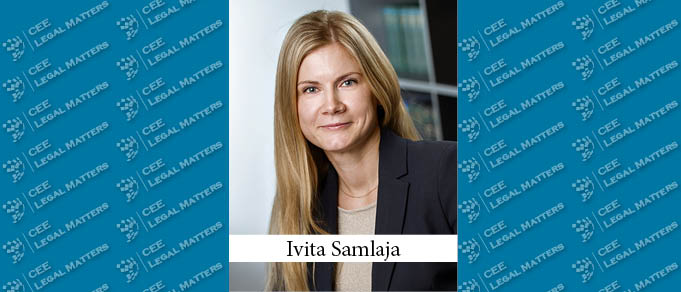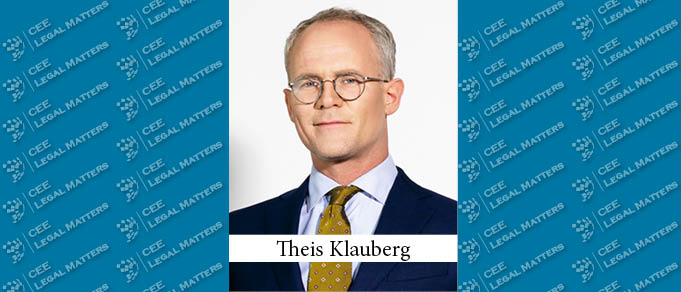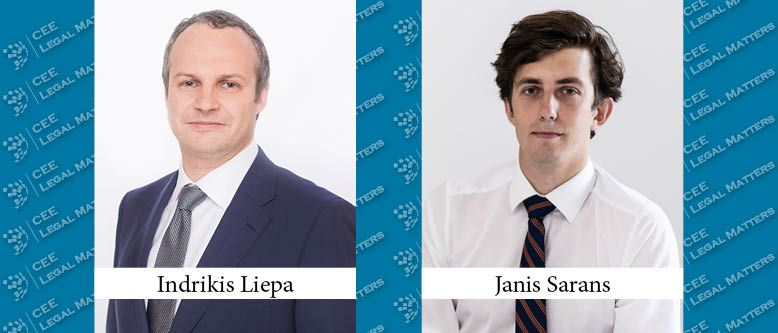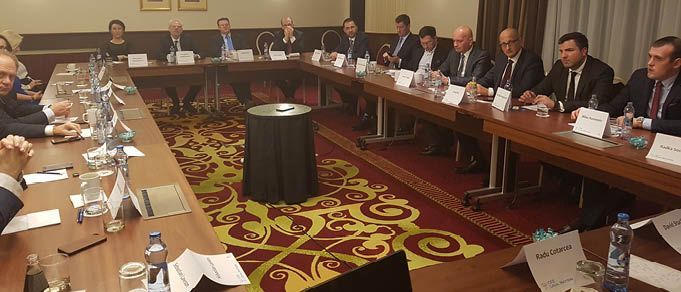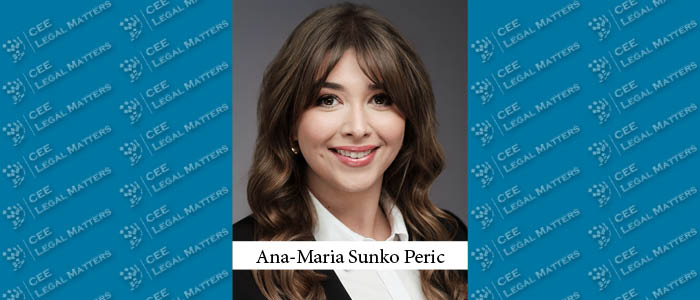In accordance with statistical data from 2018 and 2019, Latvia’s State Agency of Medicines concluded that there is a high risk of unavailability of state-reimbursed medicines in the Latvian pharmaceutical market, mainly as a consequence of the behavior of the wholesalers. The same conclusion was reached by the Competition Council of the Republic of Latvia which, in late 2018 and 2019, published two reports on the availability of medicines. Accordingly, it was concluded that the existing regulatory framework was unable to provide an effective market protection mechanism to reduce the risk that patients in Latvia might not have access to state-reimbursed medicines, because after these medicines are made available in Latvia by producers or importers, they are exported to third countries or other EU member states by other market participants.
Guest Editorial: Leaving Kitchen Justice Behind
In August 2007 crime fiction admirers in Latvia were thrilled to read a book, Kitchen Justice, describing an influential litigation attorney, the trial cases his office handled, and his secret relationship with judges and public figures. The protagonist was immediately recognized by readers, and the legal community was able to identify heroes less known to the public: the judges in the legal proceedings, who were privately communicating with the prominent attorney about the cases they were working on. It was apparent that the disguised author had based his fictional novel on a real-life characters and cases, and without delay, Latvia’s Chief Justice convened an extraordinary session of Supreme Court judges to set up a special panel of five reputable judges with a mandate to investigate the novel’s plot. The commission interviewed dozens of judges who had been identified in Kitchen Justice.
Better for Business?
Latvia’s Leading Commercial Lawyers Consider the Country’s New Economic Affairs Court
Recent AML and Sanctions Developments in Latvia’s Financial Services Sector
In 2019, amidst the money-laundering scandal of a Latvian bank and the increasing risk that the country would be included in the Financial Action Task Force’s so-called “Grey List,” Latvia’s Financial and Capital Market Commission introduced new regulations on Anti-Money-Laundering and Counter Terrorism Financing (AML/CTF) and Sanctions.
New Case Law on the Dismissal of an Employee with a Disability
The Labor Law of Latvia states that an employer is generally prohibited from dismissing employees with disabilities and has to provide such employees with adequate jobs. Employees with disabilities can be dismissed, however, on these grounds (and only these grounds): a) misbehavior; b) inability to perform the contracted job; or c) the employer’s liquidation. Additionally, until a recent judgment of the Supreme Court of Latvia, employers were unable to bring actions in court seeking the dismissal of employees with disabilities.
Expat on the Market: Theis Klauberg of Klauberg Baltics
Theis Klauberg took a circuitous route to managing his eponymous firm in the Baltics. He began his education in Germany, at the University of Hamburg, Heidelberg University, and Humboldt University of Berlin, before obtaining an LL.M. at the University of the Western Cape in South Africa, then concluding his formal education with an MBA at the Baltic Management Institute. His professional career has been no less diverse, as he has worked in Germany, Latvia, Lithuania, Estonia, Belarus, and Zimbabwe.
Capital Markets in Latvia
Contributed by Cobalt.
CEELM Covid-19 Comparative Legal Guide: Contracts in Latvia
Contributed by Cobalt
Forwarder or Carrier? Liability of a Freight Forwarder Under Latvian law
The law on carriage of goods is a well-harmonized area of international law – a streamlined set of rules that allows cargo owners and carriers to save valuable time and resources. While freight forwarders are an important element of every consignment it is surprising that many elements of forwarder’s liability are still regulated by national law.
New Chapter in Latvian Construction Law?
The Baltic real estate and construction markets remain active, with a number of sizeable transactions completed during the first few months of 2019 and investment pouring into the development of infrastructure, commercial, and residential projects. For the past decade, the Estonian and Lithuanian real estate markets have been more active than the Latvian market. Now, however, with Estonian and Lithuanian markets becoming more and more saturated, Latvia is attracting an increased amount of interest from developers and investors.
Scrutiny of Industry Practices by the Competition Authority Continues
In late 2018, the Competition Council of the Republic of Latvia published the final report on its most recent in-depth sector inquiry on the distribution practices of reimbursed medicines on the wholesale market and potential competition restrictions therein. The sector inquiry had lasted for almost two years, during which the Competition Council gathered information from both the public and the private sectors, approaching seven producers, twelve wholesalers, and several public institutions, such as the State Agency of Medicines and the Health Inspectorate, among others. Although the Competition Council proclaimed that the main goal of the sector inquiry was to analyze potential competition restrictions on the wholesale market, which could be apparent because of the vertical integration of wholesalers and leading pharmacy chains and the exclusivity status of the wholesalers, no infringements proceedings were initiated as a result. Notwithstanding the lack of subsequent infringement proceedings, however, some crucial conclusions were drawn.
VW Distributors vs. Competition Council
There is ongoing litigation between the Moller Mobility group companies in Latvia (importers and dealers of VW cars in the country) and Latvia’s Competition Council involving a EUR 7.4 million fine imposed on the companies for an alleged cartel agreement. This is the highest fine ever imposed in Latvia for breach of competition law on one group of companies.
Now or Never: The Looming GDPR Deadline
The European Union’s General Data Protection Regulation is, according to the EU-hosted GDPR website, “the most important change in data privacy regulation in the past 20 years.” The Act, which was approved by the EU Parliament on April 14, 2016 and will become fully effective on May 25, 2018, was designed “to harmonize data privacy laws across Europe, to protect and empower all EU citizens’ data privacy, and to reshape the way organizations across the region approach data privacy.”
A Night of Celebration at CEE Deal of the Year Awards Banquet in Prague
The winners of the 2017 CEE Deal of the Year Awards were announced at the first ever CEE Legal Matters Deal of the Year Awards Banquet last night in Prague. The biggest smiles in the joyous and music-filled celebration of CEE lawyering, perhaps, were on the faces of Partners from Avellum and Sayenko Kharenko, which, along with White & Case and Latham & Watkins, won the award both for Ukrainian Deal of the Year and CEE Deal of the Year for their work on the 2017 Ukraine Eurobond Issue (a story initially reported by CEE Legal Matters on October 2, 2017).
Exercise of Stock Options Under the Commercial Law of Latvia
Granting of stock options to employees is not new; it has been used for many decades around the world.
Latvia’s Tax Reform on Its Way to Launch
The long-awaited tax reform has been finally approved by the Latvian parliament. Opposition to changes in such sensitive fields as taxes is inevitable, but it is clear now that the amendments to the country’s tax code will come into effect on January 1, 2018.
Latvia’s Fight Against Corruption
Latvia is gradually improving its score in the corruption perception index. According to the international anti-corruption organization Transparency International, Latvia took 44th place in the corruption perception index in 2016, with 57 out of 100 points – after scoring 55 in both 2015 and 2014 (it scored 53 points in 2013 and 49 in 2012). This represents Latvia’s best score so far, and it appears to be a sign that tolerance of corruption in our country is continuing to decrease. By contrast, Lithuania fell from 34th place in 2015 to 38th place in 2016 (with 59 points in 2016, compared to 61 in 2015), and Estonia moved up to 22nd in 2016 from 23rd the year before, though it had the same 70-point score both years.
Experts Gather in Prague for CEE Legal Matters’ Annual Year-End Round Table
On Thursday, November 30th, leading legal practitioners from across Central and Eastern Europe gathered in Prague to help CEE Legal Matters celebrate its fourth successful year as the leading chronicle of the legal industry in the region, participating in an expert Round Table conversation about the year just concluded and enjoying an evening of dinner, drinks, and bonhomie.




